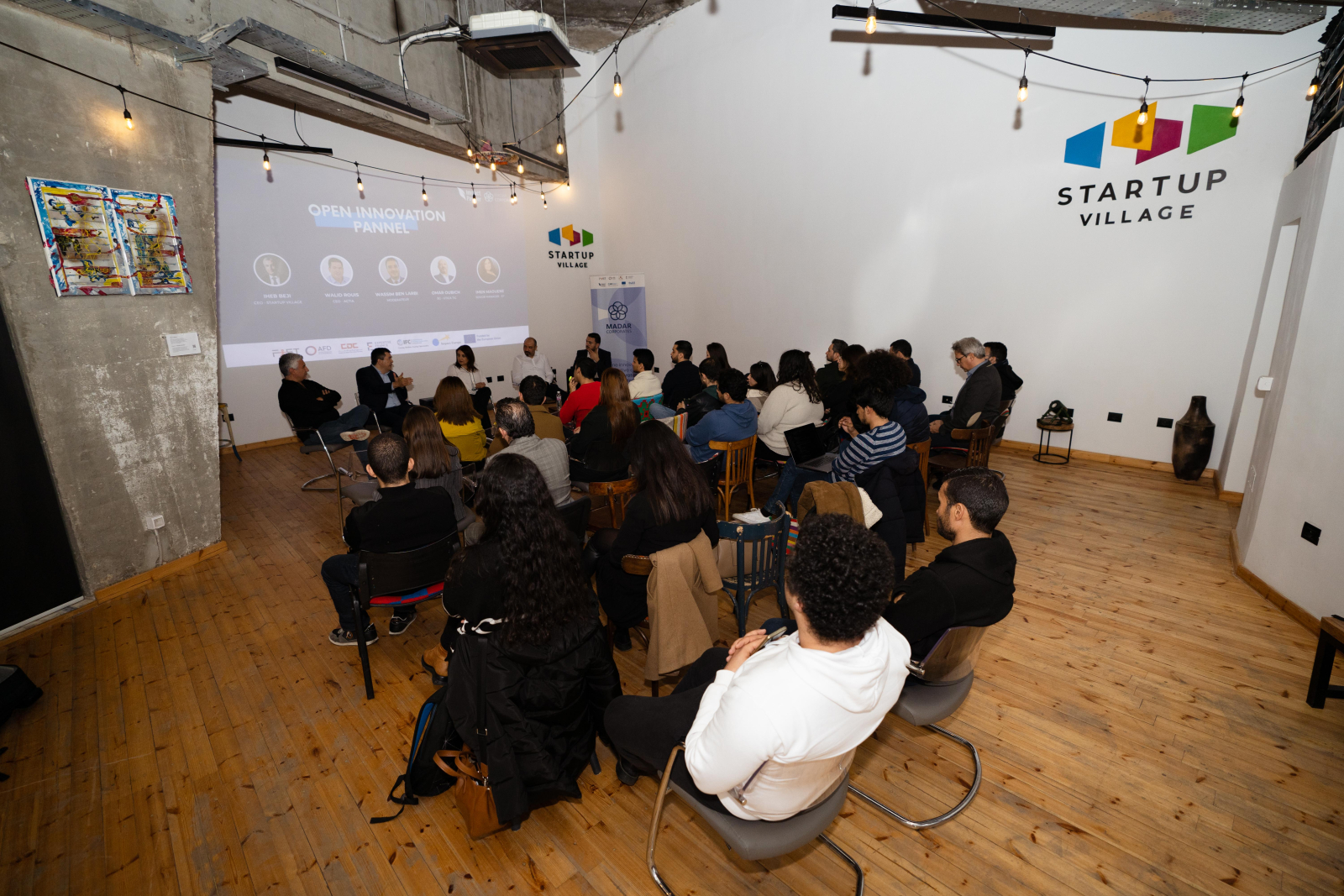It's an Impact Match!
From Tunis, with love. Those of us in relationships undoubtedly (or hopefully) know that any good relationship is a complementary one - where one partner needs assistance, the other steps in to save the day. Our Tunisian market building associates at Impact Partner know this all too well. That is why they use matchmaking sessions and a process of reverse pitching to set in motion a flywheel of impact that brings together both start-ups and corporate partners.

Let’s take a step back first. In 2023, we launched our most recent EU-funded market building programme: Impact Together!. It aims to promote and develop the social economy in the MENA-region, covering a range of seven different countries, including Tunisia, where we are teaming up with Impact Partner, who will be implementing the programme on the ground.
Tunisia is one of the few countries in the MENA-region that has some nascent policy incentives and legal frameworks for start-ups and social entrepreneurs in place. Firstly, there is the 2018 Start-up Act, which grants qualifying start-ups a label that, among other benefits, exempts them from corporate income tax and allows them a special foreign currency account, to be used at their discretion. Subsequently, in June 2020, the country approved a landmark framework law on the Social and Solidarity Economy (SSE), providing guidance on what constitutes SSE players and developing financing lines specific to social enterprises. Combined, these two pieces of legislation are meant to both support and encourage social entrepreneurs in the country, especially in the early stages of their existence. They also mean to establish ground rules and social security schemes, as well as to unite a part of the many informal economic activities that still happen daily in Tunisia.
While there are still sizeable challenges ahead in implementing this legal framework, its existence does demonstrate an increased interest in involving the social economy in helping solve some of the challenges Tunisia faces today. Trying to build on this momentum, Impact Partner acts as an intermediary, working with start-ups and social entrepreneurs and providing them with additional financial and non-financial support. Crucially, they aim to scale the social start-ups they partner with, helping them become more sustainable beyond their start-up years.
Creating a win-win situation
One of their main initiatives consists of the MADAR Corporates programme. It brings together start-ups from the Impact Partner network and a select group of corporate partners. There is a common ground both parties share, or rather, a common interest: innovation. For larger corporations, innovation is needed to solve problems, to improve their services and to grow their overall business. Start-ups, on the other hand, often have innovation at the core of their activity – they are agile, nimble, and often survive by the grace of their qualitative ideas.
The MADAR Corporates programme leverages this compatibility and centers around a process of matchmaking. Not through Tinder or Bumble, but through so-called reverse pitching sessions. The process goes like this:
Corporate partners are invited to share their real-life problems or obstacles with Impact Partner.
A selection of cases shared by the corporate partners are used as the basis of an open call to start-ups, who can submit proposed solutions to these problems.
The start-ups are invited to share their proposals during a reverse pitching session, after which the corporate partners get to pick their perfect match.
The prospective start-up partner receives a grant of 10.000 Tunisians dinar (= +- 3.000 euro) to help develop prototypes of their proposed solutions. They embark on a six-month journey under the guidance of Impact Partner.
It is not a Dragon’s Den event, where drama reigns supreme and start-ups more often than not pitch solutions to imaginary problems. By doing the whole process in reverse, Impact Partner makes sure that there is a real need being addressed, and a tangible opportunity being presented to the participating start-ups, creating a win-win for all participants.
The MADAR Corporates programme is implemented in rounds. To date, 5 pitching sessions have been held, with 2 more still on the agenda. So far, 30 start-ups have signed up, with 12 of them being matched with a corporation. Some previous connections include companies like MAJDA Tunisia, a holding company that operates mainly in the tourism sector and who found a suitable partner in a start-up named Karni. They are working on an alternative payment system that allows for delayed payments. Another example includes Misfat, a Tunisian manufacturer of car filters that has partnered up with the start-up Lunar TC to develop an internal communications tool to improve information exchange within the company.
In the current round of matchmaking, Everience, Majda Smart Solutions, BS Confection and Pluxee have joined the programme from the corporate side and are now eagerly awaiting the pitches of the participating start-ups.
Perhaps even more importantly, the matchmaking phase is the start of a learning journey for both corporate partners and start-ups. Throughout MADAR Corporates, Impact Partner provides group sessions on building a sustainable business plan, scaling an enterprise, and measuring impact to the participating entrepreneurs. At the same time, they offer a learning trajectory to their corporate partners on best practices in CSR, social procurement and implementing an impact mindset into their business model. There’s also a range of side-events and discussion panels aimed at fostering better understanding of the social entrepreneurship and how start-ups fit in a broader market economy. One such event took place at the end of February, discussing open innovation and best practices on collaborating with start-ups.

It all feeds into a strategy of bringing for-profit business closer to social entrepreneurs in their start-up phase. The capital corporations can provide in these early stages can serve as a catalyst that helps them become sustainable over the longer run. And by introducing social and sustainable solutions to problems, the impact of the participating corporations becomes larger and more intentional.
Since we are romantics at heart, especially when it comes to social enterprises, we will keep you posted on the matchmaking process and the journey of all participants throughout their time in the MADAR Corporates programme. Expect to read more about the participating social entrepreneurs soon. Expect other impact news from Tunisia, too, as we expand our activities in the MENA-region, building Impact Together!

